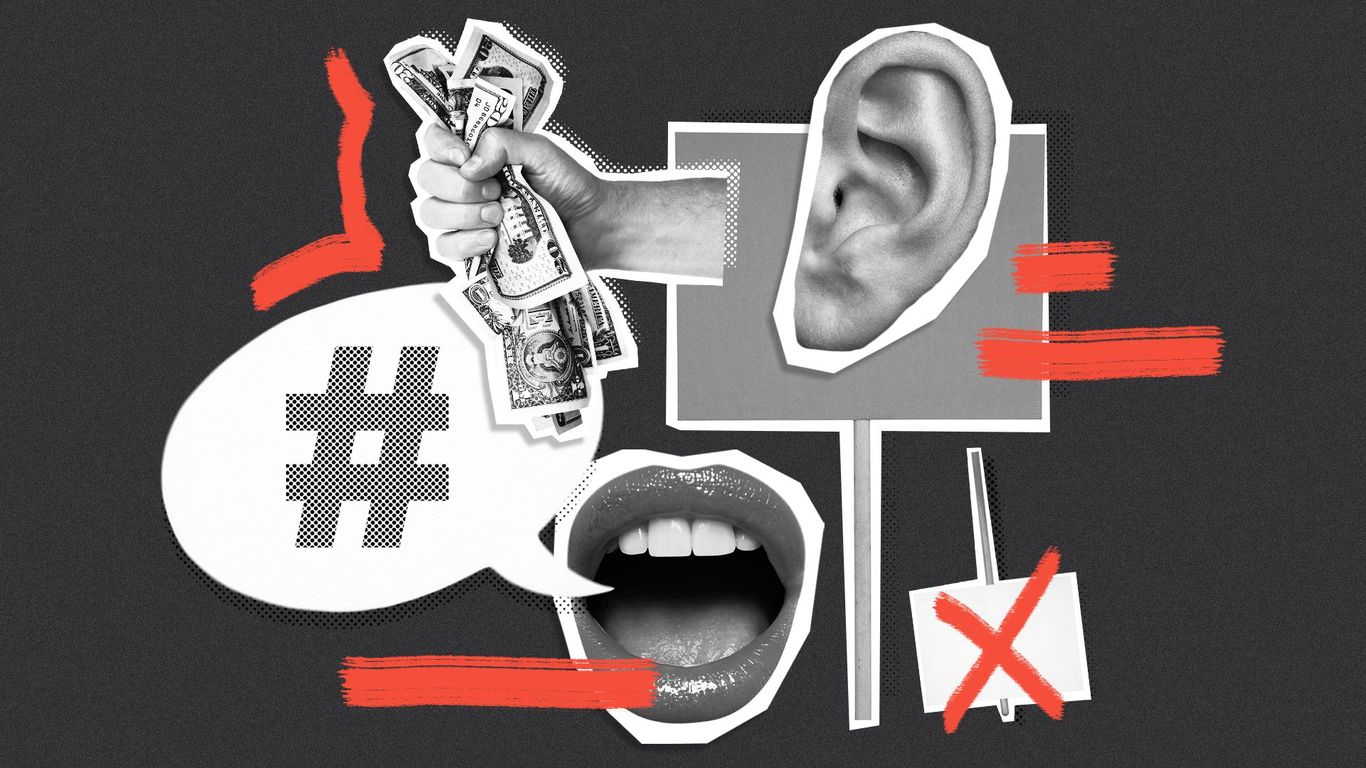
"Allyship" peaked as a hot term after the racial justice protests in the summer of 2020. Since then, its meaning and impact have been complicated by questions over what it looks like in action — what's "performative" or real.
Why it matters: Activists for racial justice say allyship is the support and empathy from other groups that forces change — think the end of South Africa's apartheid system and the 1960s civil rights movement.
"Allyship" peaked as a hot term after the racial justice protests in the summer of 2020. Since then, its meaning and impact have been complicated by questions over what it looks like in action — what's "performative" or real.
Why it matters: Activists for racial justice say allyship is the support and empathy from other groups that forces change — think the end of South Africa's apartheid system and the 1960s civil rights movement.
Movements don't die, even when moments — like protests over George Floyd's death — come and go, says Ai-jen Poo, founder of the National Domestic Workers Alliance.
- "Real allyship is when the spotlight isn't on and when you're not in a moment: What are you doing to help strengthen the ecosystem of leadership that makes movements possible?"
State of play: Black Lives Matter rallies last summer raised awareness of discrimination and injustice for nearly all underrepresented people — not just Black Americans.
- The BLM protests gave rise to rallies against anti-Asian hate, recognition of harmful Indigenous stereotypes, and awareness of violence against trans people.
Yes, but: Social support fatigue has set in and even set into motion a political backlash. This year's crusade against critical race theory is one example.
- Searches for the word "allyship" peaked near the height of the Black Lives Matter rallies and has never recovered, per a Google Trends analysis.
- Similarly, terms related to Asian hate peaked in the spring this year.
- Fear of shame or saying the wrong thing often outweighs fear of the status quo, leading to inaction, says Emani Cannady, an organizer with the Black-led prison abolitionist group Harriet's Wildest Dreams.
The big picture: Allyship in the workplace is just as fraught with gaps.
- At work, 77% of employees consider themselves allies to women of color, but only 21% consistently advocate for new opportunities for them, according to a McKinsey and Lean In 2021 report on women in the workplace. Just 10% mentor or sponsor women of color.
- "The thing about allyship is it has to show up in everything — your day-to-day actions — [and that's] where a lot of employees don't always recognize where they have an opportunity to step up," said Jess Huang, a partner at McKinsey.
What they’re saying: "It's important to qualify who is this allyship thing new for, or uncomfortable for?" says Jodi-Ann Burey, a speaker and writer who works at the intersections of race, culture and health equity.
- That means potential allies need to let go of their own fears of a negative response, according to Cannady. "What’s important to you ... helping or your feelings?"
The bottom line: "Allyship is a verb," Cannady said.
- "We need people to stand up and take the problems born of oppression as their own," says Burey.
"stage" - Google News
December 12, 2021 at 02:34AM
https://ift.tt/31RPzYY
Allyship reaches an awkward stage - Axios
"stage" - Google News
https://ift.tt/2xC8vfG
https://ift.tt/2KXEObV
Bagikan Berita Ini















0 Response to "Allyship reaches an awkward stage - Axios"
Post a Comment